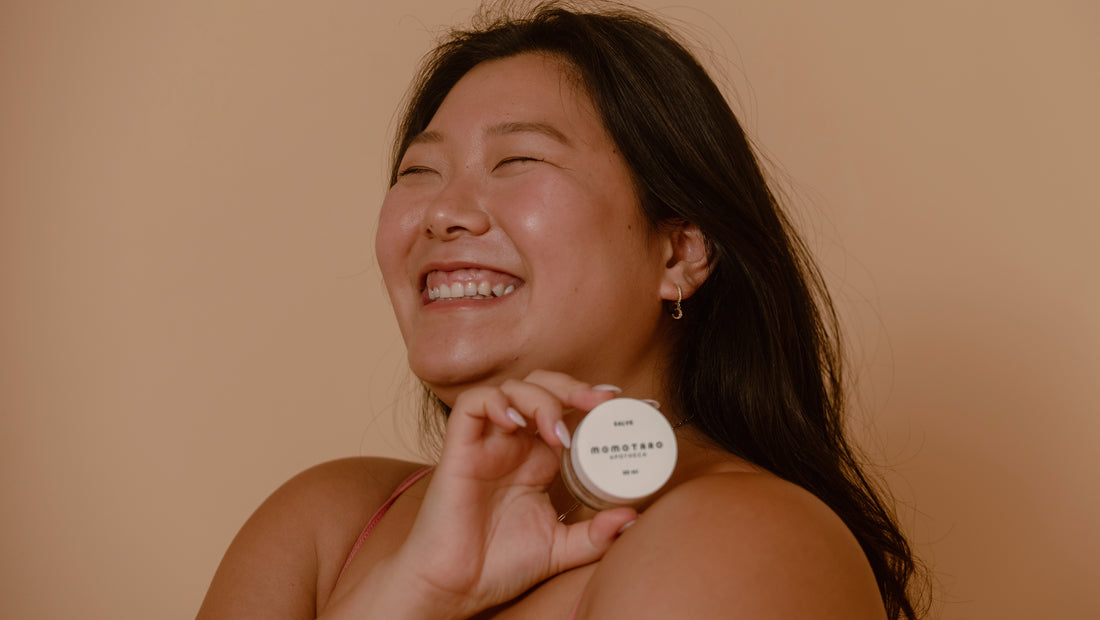
The 4 most asked questions asked about vulva and vaginal health, answered.
Share
Vulva and vaginal health are essential aspects of overall well-being for people with vaginas. Yet, there's often a lack of open discussion and reliable information about maintaining optimal health in this area. Follow along as we address the top four questions that individuals commonly have regarding their vulva and vaginal health, providing comprehensive answers and guidance.
This blog post covers the most pressing questions individuals have about vulva and vaginal health, offering actionable advice and reassurance for maintaining optimal well-being.
Question 1: How Do I Maintain Proper Hygiene for My Vulva and Vagina?
Maintaining proper hygiene for your vulva and vagina is crucial for preventing infections and maintaining overall health. Here are some key practices to follow:
-
Gentle Cleansing: Warm water on the vulva may be fine for most folks. If you prefer a little more: use mild, unscented soap and warm water to wash the external genital area. Avoid harsh chemicals or fragrances, as they can disrupt the natural pH balance and lead to irritation.
-
Front to Back Wiping: Always wipe from front to back after using the toilet to prevent the spread of bacteria from the anus to the vagina.
-
Avoid Douching: Douching disrupts the natural balance of bacteria in the vagina and can increase the risk of infections. It's best to avoid this practice altogether.
-
Change Tampons and Pads Regularly: Change tampons and pads frequently during menstruation to prevent bacterial overgrowth and reduce the risk of toxic shock syndrome (TSS).
By following these practices, you can help keep your vulva and vagina healthy and free from infections, irritation, and general discomfort.
Question 2: What Are Common Signs of Vaginal Infections, and How Can I Treat Them?
Vaginal infections are common and can be caused by various factors, including bacteria, yeast, or viruses. Some common signs of vaginal infections include:
- Unusual Discharge: Changes in color, consistency, or odor of vaginal discharge.
- Itching or Irritation: Persistent itching or irritation in the vaginal area.
- Burning Sensation: A burning sensation during urination or sexual activity.
- Inflammation: Swelling or redness of the vulva or vaginal opening.
If you experience any of these symptoms, it's essential to see a healthcare provider for proper diagnosis and treatment. Treatment for vaginal infections can involve antifungal or antibiotic medications, depending on the underlying cause. If appropriate we recommend folks take an organic, plant based approach to start. However when prescribed by your healthcare provider it's essential to complete the full course of treatment to ensure efficacy.
Question 3: How Can I Maintain a Healthy Vaginal Microbiome?
The vaginal microbiome plays a crucial role in maintaining vaginal health by keeping harmful bacteria in check and preventing infections. To promote a healthy vaginal microbiome, consider the following tips:
- Probiotics: Consuming probiotic-rich foods or supplements can help support a healthy balance of bacteria in the vagina. Shop Probiotic here.
- Avoid Antibiotics When Unnecessary: Antibiotics can disrupt the natural balance of bacteria in the vagina, so it's essential to only use them when prescribed by a healthcare provider and necessary.
- Stay Hydrated: Drinking plenty of water helps maintain proper hydration levels in the body, including the vaginal area.
- Practice Safe Sex: Using condoms during sexual activity can help prevent the spread of sexually transmitted infections (STIs) that can disrupt the vaginal microbiome.
By incorporating these habits into your routine, you can support a healthy vaginal microbiome and reduce the risk of vaginal infections, discomfort and irritation.
Question 4: What Can I Do to Relieve Vulva and Vaginal Discomfort?
Vulva and vaginal discomfort can occur for various reasons, including irritation, infection, or hormonal changes. Here are some tips to help relieve discomfort:
- Cool Compress: Applying a cool compress to the vulva can help reduce inflammation and alleviate itching or burning sensations.
- Over-the-Counter Treatments: Over-the-counter creams or ointments designed for vaginal itching or irritation may provide temporary relief. Our salve + suppository is a game changer. Shop salve for the vulva and shop Suppository for the vagina.
- Avoid Irritants: Avoid using scented products, harsh soaps, or tight-fitting clothing that can irritate the vulva and exacerbate discomfort.
- Seek Medical Advice: If discomfort persists or worsens, it's essential to seek medical advice from a healthcare provider. They can help identify the underlying cause of the discomfort and recommend appropriate treatment.
Taking care of your vulva and vaginal health is essential for overall well-being. By following proper self care practices, recognizing the signs of vaginal infections, supporting a healthy vaginal microbiome, and seeking timely medical advice for discomfort, you can promote optimal vulva and vaginal health for a happier, healthier you. Remember, your health and well-being matter, so don't hesitate to prioritize self-care in this crucial area of your body.
Bundle your vulva and vaginal care
Further Reading:
Debunking 5 Vulvovaginal Health Myths

